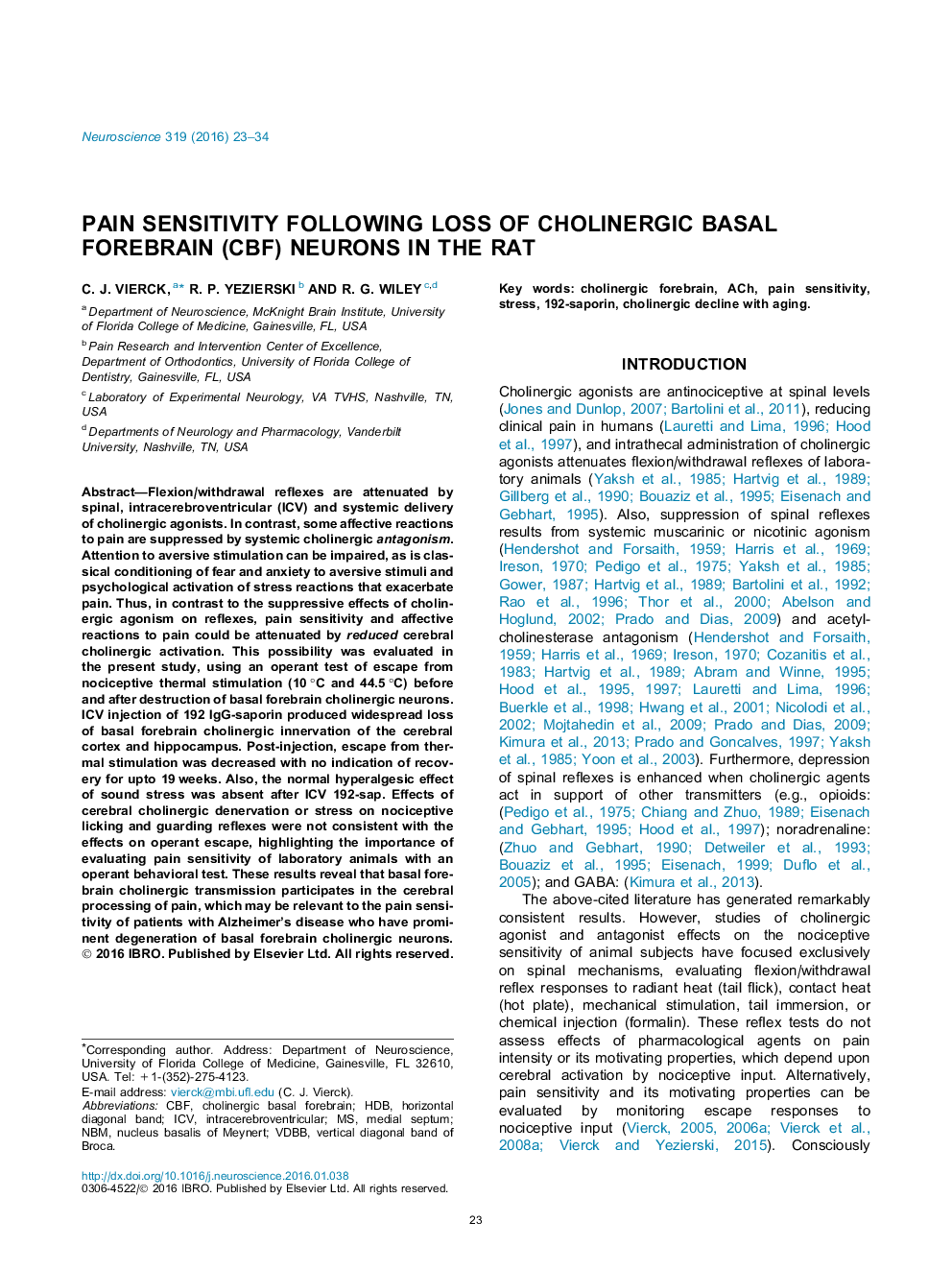| کد مقاله | کد نشریه | سال انتشار | مقاله انگلیسی | نسخه تمام متن |
|---|---|---|---|---|
| 6271372 | 1614757 | 2016 | 12 صفحه PDF | دانلود رایگان |

- Pain sensitivity of rats was evaluated following ICV administration of 192-sap.
- ICV administration of 192-sap destroyed basal forebrain cholinergic neurons.
- Pain sensitivity for cold and heat stimulation was reduced, post-injection.
- Cerebral and spinal cholinergic reduction/antagonism have opposite effects.
- Pain reduction was associated with stress reduction following ICV 192-sap.
Flexion/withdrawal reflexes are attenuated by spinal, intracerebroventricular (ICV) and systemic delivery of cholinergic agonists. In contrast, some affective reactions to pain are suppressed by systemic cholinergic antagonism. Attention to aversive stimulation can be impaired, as is classical conditioning of fear and anxiety to aversive stimuli and psychological activation of stress reactions that exacerbate pain. Thus, in contrast to the suppressive effects of cholinergic agonism on reflexes, pain sensitivity and affective reactions to pain could be attenuated by reduced cerebral cholinergic activation. This possibility was evaluated in the present study, using an operant test of escape from nociceptive thermal stimulation (10 °C and 44.5 °C) before and after destruction of basal forebrain cholinergic neurons. ICV injection of 192 IgG-saporin produced widespread loss of basal forebrain cholinergic innervation of the cerebral cortex and hippocampus. Post-injection, escape from thermal stimulation was decreased with no indication of recovery for upto 19 weeks. Also, the normal hyperalgesic effect of sound stress was absent after ICV 192-sap. Effects of cerebral cholinergic denervation or stress on nociceptive licking and guarding reflexes were not consistent with the effects on operant escape, highlighting the importance of evaluating pain sensitivity of laboratory animals with an operant behavioral test. These results reveal that basal forebrain cholinergic transmission participates in the cerebral processing of pain, which may be relevant to the pain sensitivity of patients with Alzheimer's disease who have prominent degeneration of basal forebrain cholinergic neurons.
Journal: Neuroscience - Volume 319, 5 April 2016, Pages 23-34